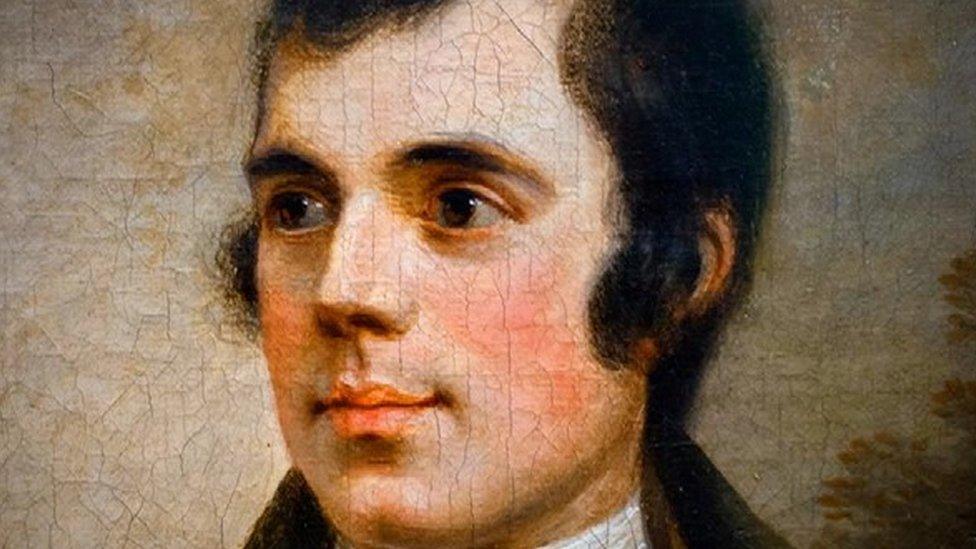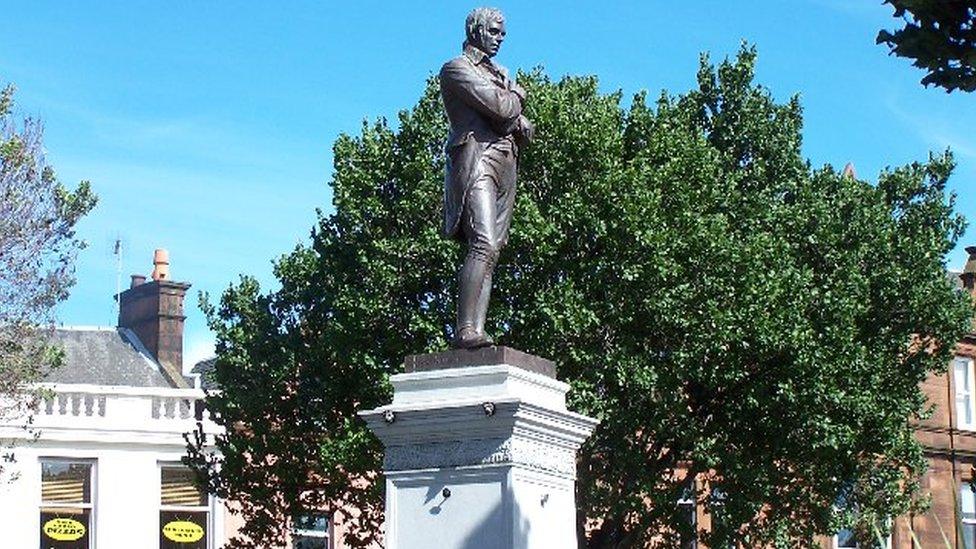Robert Burns 'may have had bipolar disorder'
- Published

More than 800 letters and journals written by Burns were studied
Scotland's national bard Robert Burns may have had bipolar disorder, according to researchers at the University of Glasgow.
More than 800 letters and journals written by Burns were studied in an attempt to analyse his mental state.
The project, which started in 2015, also looked into his personal relationships and day-to-day life.
Now the Glasgow team believe they have evidence to suggest Burns' mood cycled between depression and hypomania.
They say this might explain the writer's periods of "intense creativity, temperamental personality and unstable love life".
The research, published in The Journal of the Royal College of Physicians of Edinburgh, external, looked at blocks of letters across four separate timeframes from 1786 to 1795.
The first covered a three-month period around December 1793. This time was specifically chosen by researchers as it was a known period of "melancholia or depression" identified by Burns in his own writing.

At this time, Burns' letters show him feeling "altogether Novemberish, a damn'd melange of fretfulness and melancholy…my soul flouncing & fluttering".
Two of the letters met the criteria for clinical depression.
Moira Hansen, the principal researcher on the project, said: "During his lifetime and since his death, Burns has often been viewed as a tortured poetic genius which helped to explain his reputation as a lover of life, women and drink.
"But it is only in the last two decades that it has been mooted he may have suffered from a mood disorder."
Global icon
She added: "This project is using modern-day methods to track and categorise the bard's moods and work patterns.
"The work published in this article shows that we can use Burns' letters as a source of evidence, in place of having the face-to-face interviews a psychiatrist would normally have."
Prof Daniel Smith, professor of psychiatry at the University of Glasgow, said: "Carefully assessing the mood and behaviour of one of Scotland's iconic figures, using both medical and literary expertise, is a new approach that helps to paint a picture of his mental health and how it affected both his life and writing.
"Obviously it hasn't been an easy task given our subject has been dead for more than 200 years. We hope that the possibility that Scotland's national bard, a global icon, may have had bipolar disorder will contribute to discussions on the links between mental illness and creativity.
"This work might also help to destigmatise psychiatric disorders such as bipolar disorder and depression."